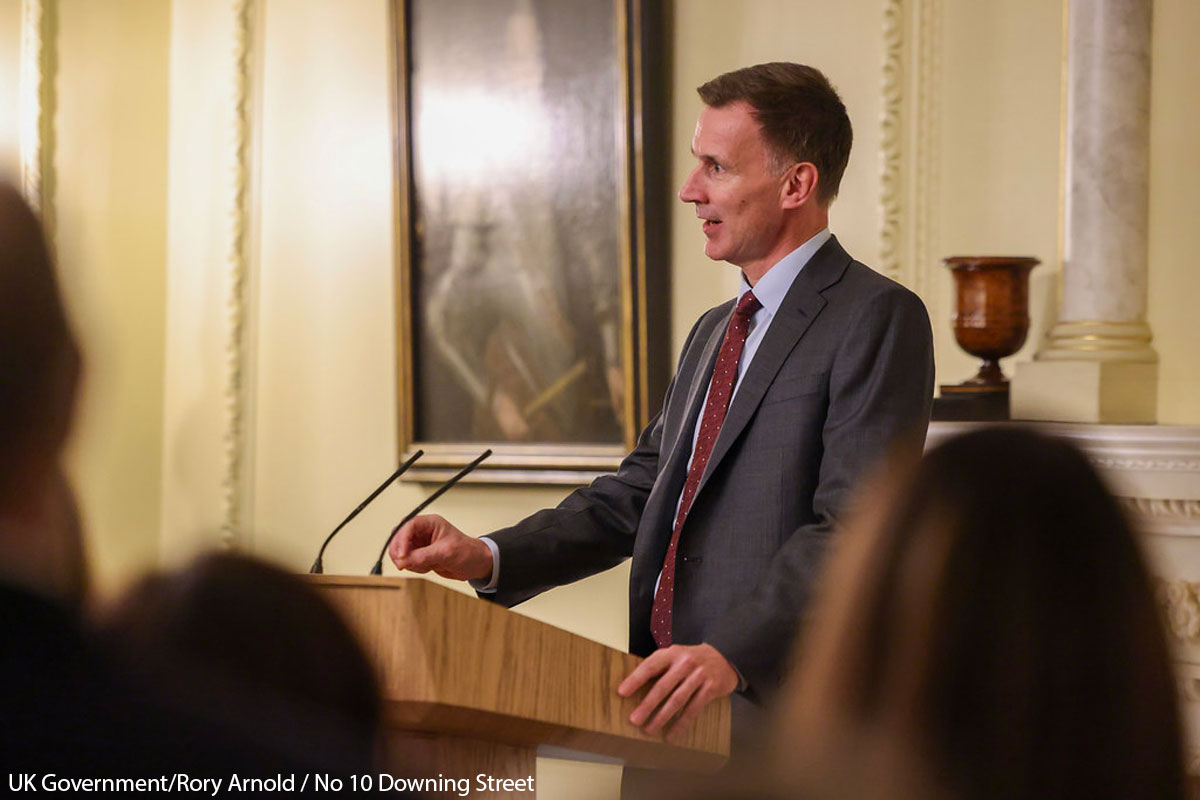Chancellor aims to discourage non-smokers from taking up vaping devices

CHANCELLOR of the exchequer Jeremy Hunt has confirmed a tax will come on vaping devices in October 2026.
As part of the Spring Budget announcement today, the chancellor said the move will look to prevent consumers who don’t smoke from taking up vaping devices.
Hunt said: “To discourage non-smokers from taking up vaping, we are today confirming the introduction of an excise duty on vaping products from October 2026 and publishing a consultation on its design.”
The new tax levy will be open to consultation from across the board as government has given more than 2 years before any final decision is made on how this will look.
Currently, the rates stand at £1 per 10ml for nicotine free liquids, and £3 per 10ml on liquids that contain 11mg or more per ml of nicotine, subject to consultation on the matter.
The UK Government has confirmed that a 12-week consultation will be published on the policy design.
In addition to this, the chancellor also confirmed that tobacco duty would once again rise in 2026 to ensure that current smokers are not deterred from taking up vaping as an alternative. This will see an increase of £2 per 100 cigarettes or 50 grams of tobacco.
Hunt said: “Because vapes can also play a positive role in helping people quit smoking, we’ll introduce a one off increase in tobacco duty at the same time to maintain the financial incentive to choose vaping over smoking.”
On the vaping levy, Association of Convenience Stores (ACS) chief executive James Lowman said that this will prove to be yet another challenge for retailers to contend with on top of the already planned ban on disposable devices coming in April 2025.
He said: “Retailers are trying to prepare for multiple changes to the regulation and taxation of the vaping category: a ban on disposables expected to come into effect in April 2025, a variety of as-yet undrafted regulations on the siting and marketing of products, and now the introduction of duty on vape sales from 2026.
“We will work with the government to try and make these various measures coherent and effective, but retailers will be feeling confused about the purpose and implementation of these regulations.
“Responsible retailers will also be concerned at the advantage given to illicit importers and sellers of vapes who will not pay excise duty, over legitimate businesses who will apply this tax to the price of vapes.”
John Dunne, director general at the UK Vaping Industry Association (UKVIA), has previously slammed a potential tax on vaping devices, calling it an attack on those trying to quit smoking.
He said: “Increasing taxes on vaping will make vapes less accessible for the most disadvantaged in society who have the highest smoking rates and are most in need of an effective tool to quit.
“The Government continue to hide their heads in the sand, while taking actions that will fuel a black market which is already in danger of being out of control. Restricting access to vapes will not only mean more smokers, it will also mean more illegal and unregulated vapes.”
This one-off increase comes after the chancellor chose to increase tobacco duty by 10% on top of the scheduled 2% rise in the 2023 Autumn Budget.
In addition to this, the chancellor has also confirmed that both alcohol duty and fuel duty will remain frozen for the next 12 months in a bid to save money for more consumers.
Commenting on the freeze on alcohol duty until February 2025, Mark Kent, chief executive at the Scottish Whisky Association, said: “The industry welcomes the Chancellor’s recognition of the benefits of continuing the duty freezes beyond August this year.
“That decision supports the Scotch Whisky industry, will incentivise investment and, as with previous cuts and freezes, boost Treasury revenue.
“With cost pressures hurting our bars and pubs, not to mention hard pressed consumers, the Treasury has provided some much-needed certainty and stability for the year ahead.”
However, motoring firm RAC has already highlighted the recent rise in prices at the pumps, noting that, on average, petrol has risen by 4p and diesel by 5p across the UK in February, marking the largest increase for fuel in five months.
RAC fuel spokesman Simon Williams said: “Our data shows that in February, drivers endured the highest monthly average fuel price increases since September 2023.
Diesel’s 4.7p rise was the 14th largest and the 4p that went on to petrol was the 17th biggest increase since the start of the century.
“Looking at average margins across the whole of the UK, retailers are currently taking around 10p a litre on average across both petrol and diesel.
“The supermarkets in particular have now noticeably upped their margins to 8p a litre compared to 6p in 2019. Luckily for drivers, this is lower than the last two years when it was around 9.5p.”

















